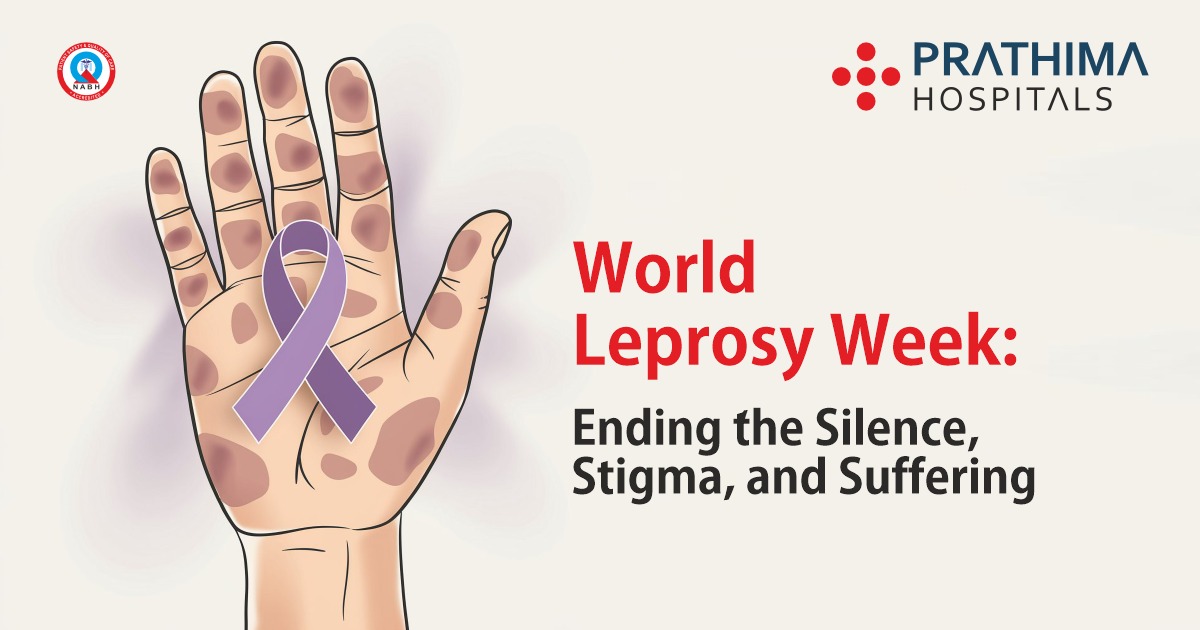What are the causes for Asthma and How to Prevent it?

Precautions for Asthma
Introduction:
Inflammation and narrowing of the airways are characteristics of asthma, a chronic respiratory disease that causes difficulty breathing. It affects people of all ages but is more common in children than adults. Asthma is a significant public health concern, as per the world asthma report approximately more than 300 million people are affected worldwide with this disease. In this article, we will provide a comprehensive overview of asthma, including its causes, symptoms, diagnosis, treatment, and prevention.
Causes of Asthma as per Prathima Hospitals Pulmonologist in Kachiguda :
The exact cause of asthma is unknown, but several factors are known to contribute to its development. Genetics, environmental factors, and lifestyle factors are all believed to play a role. Asthma tends to run in families, and people with a family history of the condition are more likely to develop it themselves.
Genetics: There is a genetic component to asthma, as it tends to run in families. Specific genes have been identified that are associated with an increased risk of asthma, including genes related to immune system function, inflammation, and airway responsiveness.
Environmental factors: A person’s risk of developing asthma can be increased by certain environmental factors. This includes exposure to air pollution, cigarette smoke, and other irritants, as well as exposure to allergens such as pollen, dust mites, and pet dander.
Respiratory infections: Respiratory infections, particularly during early childhood, have been linked to an increased risk of developing asthma. This may be due to the effect of infections on the developing immune system and airways.
Allergies: Allergies can initiate asthma signs in some people. Common allergens that can trigger asthma include pollen, dust mites, mould, pet dander, and certain foods.
Obesity: Obesity has been linked to an advanced risk of formulating asthma. This may be due to the effect of excess weight on lung function and inflammation in the body.
Occupational exposures: Certain occupations, such as those that involve exposure to dust, chemicals, or other irritants, can increase the risk of developing asthma.
Hormonal factors: Hormonal changes, particularly in women, can affect asthma symptoms. For example, asthma symptoms may worsen during menstruation or pregnancy.
Symptoms of Asthma:
The symptoms of asthma can vary in severity from person to person, and they may also vary over time. Common symptoms of asthma include:
Wheezing: Wheezing is a high-pitched whistling sound when breathing that is commonly associated with asthma. Wheezing is caused by the narrowing of the airways, which makes it difficult for air to pass through. Wheezing is most commonly heard during exhalation, but it can also occur during inhalation.
Shortness of breath: Shortness of breath is a feeling of difficulty breathing, especially during exercise or physical activity. Shortness of breath can occur when the airways are narrowed, making it harder for air to move in and out of the lungs.
Chest tightness: Chest tightness is a feeling of strain in the chest. Chest tightness can be caused by the inflammation of the airways, which can cause them to constrict and make it difficult to breathe.
Coughing: Coughing is a common symptom of asthma, especially at night or early in the morning. The cough is usually dry and can be persistent. Coughing is caused by the irritation of the airways, which can trigger the reflex to cough.
Difficulty breathing: Difficulty breathing is a general symptom of asthma that can occur with or without other symptoms. It can feel like a tightness or pressure in the chest or a feeling of being unable to take a deep breath.
Rapid breathing: Rapid breathing, also comprehended as tachypnea, is a sign of extreme asthma. It occurs when the airways are severely narrowed, making it difficult to breathe. Rapid breathing can be accompanied by other symptoms, such as wheezing, shortness of breath, and chest tightness.
Fatigue: Fatigue is a common symptom of asthma, especially during an asthma attack. It can be caused by the increased effort required to breathe, which can cause exhaustion and tiredness.
Trouble sleeping: People with asthma may experience trouble sleeping due to coughing, wheezing, and shortness of breath. This can direct to fatigue and other signs.
Anxiety: Anxiety is a common symptom of asthma, especially during an asthma attack. It can be caused by the fear of not being able to breathe or the fear of having an asthma attack.
Symptoms of asthma can be triggered by a variety of factors, including exercise, cold air, pollen, dust, and stress.
Diagnosis of Asthma:
To diagnose asthma, a Pulmonologist in Kukatpally, will typically start by taking a medical history and performing a physical exam. They may also perform lung function tests, such as spirometry, to measure the amount of air you can exhale and how quickly you can do it.
In some cases, a Pulmonologist in KPHB may also perform a methacholine challenge test, which involves inhaling a medication that causes airway constriction. If your airways constrict in response to the medication, it may be a sign of asthma.
Treatment of Asthma:
There is no cure for asthma, but it can be managed effectively with proper treatment. The goal of asthma treatment is to control symptoms, prevent flare-ups, and maintain good lung function. Here are the common treatments for asthma in detail:
Inhaled bronchodilators: Inhaled bronchodilators are medications that help to relax the muscles around the airways, making it easier to breathe. These medications are usually taken through an inhaler or a nebulizer, and they can provide quick relief of asthma symptoms.
Inhaled corticosteroids: Inhaled corticosteroids are medications that help to reduce inflammation in the airways, which can help to prevent asthma attacks. These medications are usually taken daily, and they can take several weeks to start working effectively.
Combination inhalers: Combination inhalers contain both a bronchodilator and a corticosteroid in one device. These medications can provide both quick relief of symptoms and long-term control of asthma.
Oral medications: Oral medications, such as leukotriene modifiers, can also be used to treat asthma. These medications work by blocking the action of chemicals that cause inflammation in the airways.
Immunomodulators: Immunomodulators, such as omalizumab, are medications that can be used for people with severe asthma. These medications work by blocking the body’s immune response to allergens, which can help to prevent asthma attacks.
Breathing exercises: Breathing exercises, such as pursed-lip breathing and diaphragmatic breathing, can help to improve lung function and reduce symptoms of asthma.
Allergy treatment: Allergy treatment, such as allergy shots or sublingual immunotherapy, can help to reduce sensitivity to allergens and prevent asthma attacks triggered by allergies.
Lifestyle changes: Lifestyle changes, such as avoiding triggers and maintaining a healthy weight, can also help to control asthma symptoms.
Precautions for Asthma :
While there is no guaranteed way to prevent asthma, there are steps you can take to reduce your risk of developing the condition. These steps include:
Avoiding triggers: Identifying and avoiding triggers is one of the most important steps in preventing asthma symptoms. Common triggers include pollen, dust mites, pet dander, mould, smoke, and air pollution. By minimizing exposure to the above triggers, asthma signs can be reduced.
Keeping the environment clean: Keeping the home and workplace clean can also help to reduce exposure to asthma triggers. This includes regular dusting, vacuuming, and washing bedding to reduce exposure to dust mites, and keeping the home dry to reduce mould growth.
Maintaining a healthy weight: Maintaining a healthy weight can help to reduce the risk of asthma symptoms. Being overweight or obese can put extra pressure on the lungs, making it harder to breathe and increasing the risk of asthma attacks.
Getting regular exercise: Regular exercise can help to improve lung function and reduce the risk of asthma symptoms. However, it is important to avoid exercise-induced asthma by warming up before exercising and taking breaks as needed.
Quitting smoking: Smoking can worsen asthma symptoms and increase the risk of asthma attacks. Quitting smoking can help to reduce the risk of asthma symptoms and improve overall health.
Managing stress: Stress can trigger asthma symptoms in some people. By managing stress through relaxation techniques such as deep breathing, meditation, and yoga, asthma symptoms can be reduced.
Taking medications as prescribed: Taking medications as prescribed by a healthcare provider is important in preventing asthma symptoms. This includes using inhalers and other medications regularly as prescribed and carrying a quick-relief inhaler for use during asthma attacks.
Immunomodulators: Immunomodulators, such as omalizumab, can be used for people with severe asthma. These medications work by blocking the body’s immune response to allergens, which can help to prevent asthma attacks.
Conclusion:
There are millions of people in the world suffering from this chronic respiratory disease. Although there is no known cure for asthma, it can be effectively managed with the right care and lifestyle change. If you experience symptoms of asthma, such as wheezing, shortness of breath, chest tightness, or coughing, it’s important to seek medical attention at Pulmonologist in Hyderabad. People with asthma can enjoy active lives with the proper care and control.
.
.
.
.
For more details :
📞:: 733 733 6600 | 040 4345 4345
🌐:: www.prathimahospitals.com






Warning: Undefined variable $req in /home/u885608126/domains/prathimahospitals.com/public_html/wp-content/themes/prathimahospitals/functions.php on line 294
Warning: Undefined variable $commenter in /home/u885608126/domains/prathimahospitals.com/public_html/wp-content/themes/prathimahospitals/functions.php on line 295
Warning: Trying to access array offset on value of type null in /home/u885608126/domains/prathimahospitals.com/public_html/wp-content/themes/prathimahospitals/functions.php on line 295
Warning: Undefined variable $aria_req in /home/u885608126/domains/prathimahospitals.com/public_html/wp-content/themes/prathimahospitals/functions.php on line 295
Warning: Undefined variable $req in /home/u885608126/domains/prathimahospitals.com/public_html/wp-content/themes/prathimahospitals/functions.php on line 298
Warning: Undefined variable $commenter in /home/u885608126/domains/prathimahospitals.com/public_html/wp-content/themes/prathimahospitals/functions.php on line 299
Warning: Trying to access array offset on value of type null in /home/u885608126/domains/prathimahospitals.com/public_html/wp-content/themes/prathimahospitals/functions.php on line 299
Warning: Undefined variable $aria_req in /home/u885608126/domains/prathimahospitals.com/public_html/wp-content/themes/prathimahospitals/functions.php on line 300
Warning: Undefined variable $commenter in /home/u885608126/domains/prathimahospitals.com/public_html/wp-content/themes/prathimahospitals/functions.php on line 303
Warning: Trying to access array offset on value of type null in /home/u885608126/domains/prathimahospitals.com/public_html/wp-content/themes/prathimahospitals/functions.php on line 303